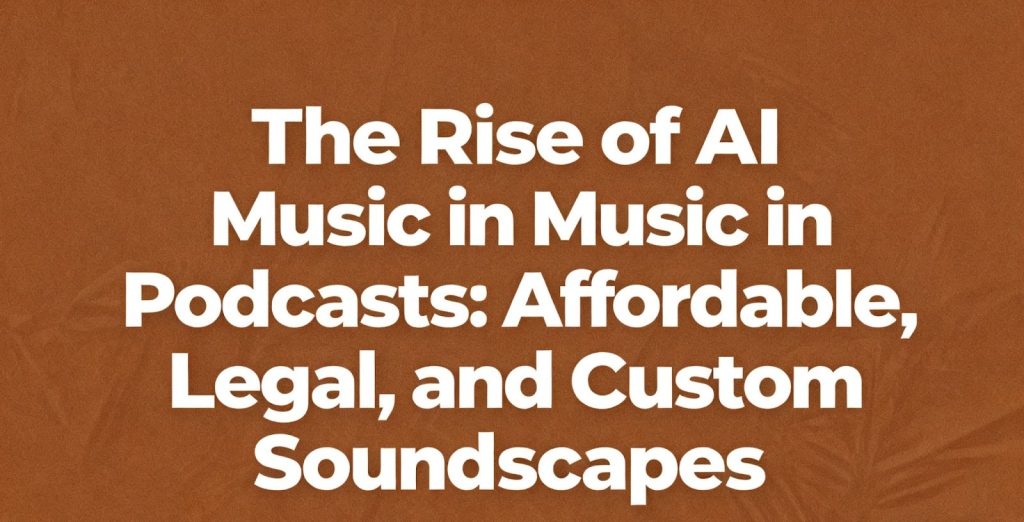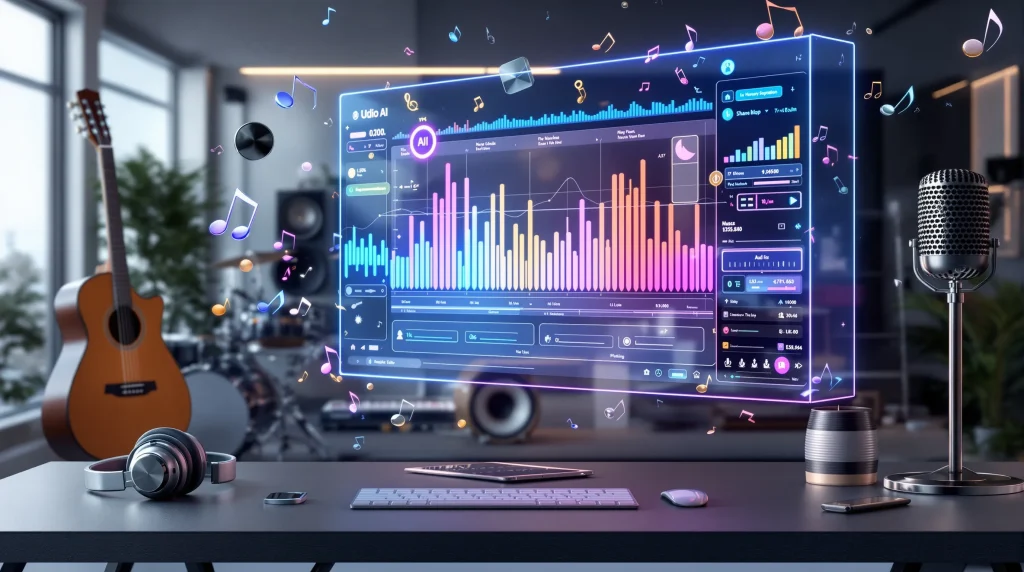2025년에는 팟캐스터의 80% 이상이 비싼 라이선스나 복잡한 저작권 관리의 부담 없이 고유한 오디오 브랜딩을 추구할 것입니다. 팟캐스트 인트로 음악 AI 솔루션은 이제 기존 비용의 일부로 전문적인 사운드스케이프를 제공하며, 로열티 없이 안전하고 어떤 프로그램에도 맞춤화할 수 있습니다. 이 문서에서는 AI로 생성된 음악이 팟캐스트 제작을 혁신하는 이유, 크리에이터가 시그니처 오디오 아이덴티티를 만드는 방법, 다음과 같은 뛰어난 기능에 대해 설명합니다. Mureka AI의 플랫폼, 필수 법적 고려 사항, 경제성 및 효율성 향상, 새로운 혁신, 그리고 다음과 같은 실용적인 단계에 대해 설명합니다. 무레카 시작하기. 팟캐스터는 비용 절감, 사용자 지정, 법률 준수를 결합하여 직관적인 AI 도구를 통해 청취자 참여를 높이고 기억에 남는 음향 브랜드를 구축할 수 있습니다.
AI 음악이 팟캐스트 제작에 혁명을 일으키는 이유는 무엇인가요?
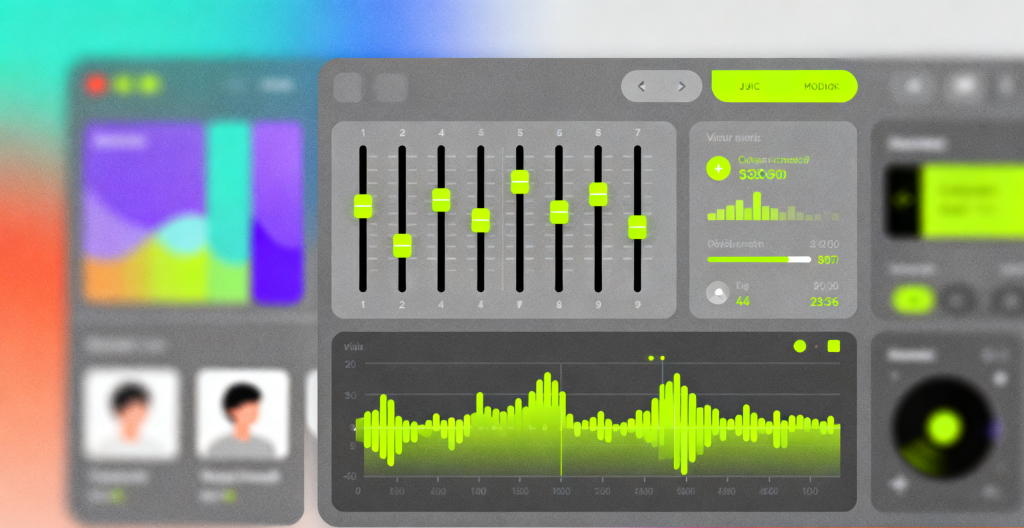
팟캐스트를 위한 AI 음악 생성은 알고리즘 구성과 사용자 입력을 결합하여 맞춤형 사운드트랙을 생성하므로 라이선스 협상과 스튜디오 예약이라는 기존의 과정을 생략할 수 있습니다. AI 시스템은 장르, 분위기, 템포 선호도를 분석하여 전문적인 오디오 품질을 유지하면서 쇼의 정체성에 맞는 인트로, 전환, 배경 레이어를 구성합니다. 이 메커니즘은 액세스를 민주화할 뿐만 아니라 에피소드 전반에 걸쳐 일관성을 보장합니다.
팟캐스터는 비용, 합법성, 사용자 지정, 속도를 아우르는 네 가지 핵심 이점을 누릴 수 있습니다. 이러한 비용 절감과 안전장치는 다음 섹션에서 오디오 브랜딩과 워크플로 통합에 대해 자세히 살펴볼 수 있는 기반을 마련합니다.
- 스튜디오 비용 없이 자동화된 구성을 통한 비용 절감
- 상업적 사용을 위한 로열티 없는 라이선스 보장
- 팟캐스트 테마에 맞춰 조정된 맞춤형 사운드스케이프
- 촉박한 프로덕션 일정을 위한 즉각적인 트랙 생성
이러한 혁신은 예산 제약이 아닌 창의적 역량 강화를 통해 고유한 팟캐스트 오디오 아이덴티티를 구축할 수 있는 길을 열어줍니다.
팟캐스트의 AI: 비용 절감 및 접근성 향상
주요 조사 결과에 따르면 팟캐스트 업계에서 AI 통합을 통해 얻을 수 있는 기회는 시간, 노력 및 비용 절감, 특히 음질 개선, 잡음 제거, 톤 조정, 번역 및 전사 서비스를 통한 도달 범위 확대, 시각 장애인과 청각 장애인을 위한 접근성 향상 등을 포함합니다. 또한 결과는 다음과 같습니다.
오만 술탄국의 팟캐스트 산업에 인공 지능을 통합합니다: 기회, 도전 과제 및 윤리적 고려 사항, MN Al-Suqri, 2025년
팟캐스터는 어떻게 AI 음악으로 고유한 오디오 아이덴티티를 만들 수 있을까요?
시그니처 사운드 브랜드를 만들려면 인트로, 아웃트로, 백그라운드 스코어 전반에 걸친 일관성이 필요합니다. AI 기반 도구는 쇼 톤과 청취자의 기대치를 분석하여 팟캐스트의 주제를 반영하면서 정서적으로 공감할 수 있는 테마를 생성합니다. 이러한 접근 방식은 첫 음부터 청취자의 인지도를 높일 수 있습니다.
오디오 브랜딩의 일관성은 청취자의 기억을 강화하고 홍보 활동을 지원합니다. 팟캐스터는 AI를 활용하여 악기, 하모니, 리듬 모티프를 맞춤화함으로써 각 에피소드가 각 세그먼트 간에 매끄럽게 흐르면서 자신만의 고유한 사운드를 구현할 수 있습니다.
AI 기반 팟캐스트 인트로와 아웃트로의 모범 사례는 다음과 같습니다:
- 쇼의 스타일에 맞는 명확한 분위기와 템포를 정의하세요.
- 짧은 멜로디 문구인 레이트모티프를 사용하여 브랜드 정체성을 강화하세요.
- 음성 해설과 음악 악센트를 결합하여 역동적인 오프닝을 연출할 수 있습니다.
- 일관성을 잃지 않고 테마를 최신 상태로 유지하기 위해 변형을 반복합니다.
이 가이드라인을 채택하면 전문성이 향상되고 크리에이터는 다음 단계로 배경 통합 및 음향 효과 생성을 탐색할 준비를 할 수 있습니다.
팟캐스트 음악 제작에 Mureka AI가 이상적인 이유는 무엇인가요?
Mureka AI의 음악 생성기 는 장르, 분위기, 악기 팔레트 등 사용자 프롬프트를 고품질 오디오 트랙으로 단 몇 분 만에 변환합니다. 그 직관적인 인터페이스 는 팟캐스터가 스타일을 선택하는 과정을 안내하여 인트로, 전환, 주변 배경을 빠르게 A/B 비교할 수 있도록 합니다. 이 메커니즘은 창의적인 결정을 간소화하고 기술적 장벽을 줄여줍니다.
뛰어난 기능 세트는 초기 작곡부터 최종 믹스에 이르기까지 엔드투엔드 팟캐스트 음악 워크플로우를 지원합니다. 팟캐스터는 각 트랙에 대한 소유권 인증서를 획득하여 상업적 사용에 대한 완전한 통제권을 보장받습니다. 이러한 보장은 법적 신뢰를 강화하고 숨겨진 수수료 없이 에피소드 수익 창출을 용이하게 합니다.
| 기능 | 혜택 | 중요한 이유 |
|---|---|---|
| 대화형 스타일 참조 | 몇 초 만에 팟캐스트 톤에 맞게 음악 정렬하기 | 크리에이티브 디렉팅 속도 향상 |
| 악기 생성 | 선택한 텍스처로 커스텀 트랙 생성 | 고유한 브랜드 사운드스케이프 구현 |
| 보컬 및 징글 옵션 | 음성 후크 또는 가수 스타일의 모티프 추가 | 인트로/아웃트로의 기억력 향상 |
| 로열티 없는 소유권 | 영구적인 상업적 권한 부여 | 라이선스 복잡성 제거 |
이러한 기능은 모든 프로덕션 일정에 원활하게 통합되며 법률 및 라이선스 필수 요소의 토대를 마련합니다.
팟캐스트에서 AI 음악에 대한 법적 및 라이선스 필수 사항은 무엇인가요?
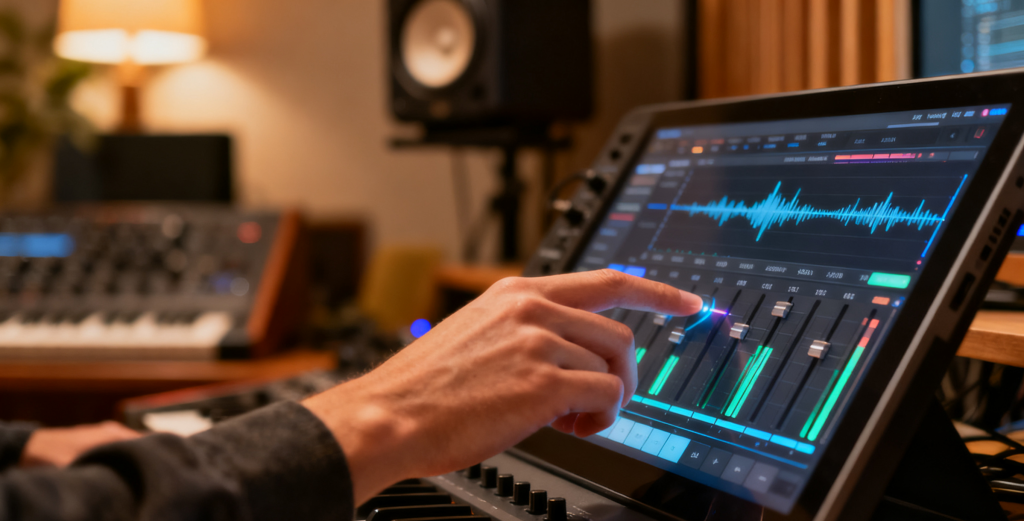
로열티가 없는 AI 음악은 크리에이터가 지속적인 지불이나 저작자 표시 요건 없이 트랙을 사용할 수 있는 비독점적이고 영구적인 라이선스를 받는다는 의미입니다. 이러한 라이선스 구조를 통해 팟캐스터는 추가 비용 없이 에피소드로 수익을 창출하고, 광고를 실행하고, 모든 플랫폼에 배포할 수 있습니다. 선불 라이선스 메커니즘은 규정 준수를 간소화합니다.
AI가 생성한 팟캐스트 음악의 저작권은 사용자의 소유권 증명서에 있으므로 명확한 저작자 권리를 확립할 수 있습니다. 팟캐스터는 기존의 사용자 지정 작곡과 유사한 사용 권한을 보유하므로 기존 저작권 자료와 관련된 위험을 완화할 수 있습니다. 이 프레임워크는 진화하는 지적 재산권 가이드라인에 부합합니다.
| 라이선스 요소 | 정의 | 실질적인 영향 |
|---|---|---|
| 영구적, 비독점적 | 갱신 수수료 없이 모든 형식에서 무제한 사용 | 장기적인 비용 예측 가능성 |
| 상업적 사용 허가 | 수익 창출 활동에 대한 승인 | 스폰서십, 광고 및 상품 활성화 |
| 어트리뷰션 요구 사항 | AI 지원에 관한 진술(있는 경우) | 최소한의 의무, 종종 선택 사항 |
| 소유권 증명서 | 생성 날짜 및 사용자 권한 증명 | 타사 클레임으로부터 방어 |
팟캐스터는 이러한 필수 사항을 이해함으로써 제작의 경제성과 효율성을 평가할 수 있습니다.
AI 음악은 팟캐스트 제작을 어떻게 더 저렴하고 효율적으로 만들까요?
업계 추산에 따르면 AI 음악 솔루션은 기존 라이선스 및 스튜디오 비용에 비해 제작 예산을 최대 90%까지 절감할 수 있습니다. 자동화된 작곡 도구는 인간 작곡가의 대기 시간을 없애고 컨셉부터 최종 편집까지 소요되는 시간을 단축합니다. 이러한 효율성 덕분에 제작자는 사운드 조달이 아닌 콘텐츠에 집중할 수 있습니다.
간소화된 워크플로우를 통해 AI 트랙을 편집 타임라인에 바로 통합할 수 있습니다. 메타데이터 태그가 지정된 인트로, 아웃트로, 배경 레이어를 생성함으로써 팟캐스터는 수동 믹싱과 마스터링에 소요되는 시간을 절약할 수 있습니다. 이렇게 시간을 절약하면 에피소드 주기를 단축하고 마케팅과 리서치를 위한 리소스를 확보할 수 있습니다.
팟캐스터를 위한 예산 친화적인 AI 음악 솔루션에는 다음이 포함됩니다:
- 기본 사용자 지정 옵션이 포함된 오픈 소스 AI 플랫폼
- 구독 기반 서비스 무제한 트랙 생성 제공
- 고품질 출력을 위한 단계별 요금제를 갖춘 트랙당 과금 모델
- 사용자 지정 작곡을 사고 팔 수 있는 마켓플레이스가 내장되어 있습니다.
이러한 옵션을 수용하면 투자 수익을 극대화할 수 있으며, 자연스럽게 AI 팟캐스트 음악을 형성하는 새로운 트렌드를 살펴볼 수 있습니다.
AI 팟캐스트 음악의 새로운 트렌드와 미래 혁신은 무엇인가요?
초개인화된 AI 오디오는 청취자의 선호도에 따라 실시간으로 적응하여 피드백 신호에 따라 배경 강도나 계측을 조정합니다. 이러한 트렌드는 참여도와 유지율을 높이는 맞춤형 청취 경험을 약속합니다. 적응형 스코어링의 초기 실험은 역동적인 에피소드 사운드트랙으로의 전환을 예고합니다.
AI 기반 오디오 편집 및 마스터링의 발전은 머신 러닝을 활용하여 자동으로 레벨을 조정하고 노이즈를 제거하며 플랫폼 전반에서 음량을 최적화합니다. 이러한 혁신은 포스트 프로덕션 작업량을 줄이고 일관된 방송 표준을 보장합니다. 이러한 영역의 자동화는 품질 저하 없이 전송 속도를 높여줍니다.
AI가 생성한 음악에 대한 윤리적 고려 사항에는 기계의 개입에 대한 투명성과 학습 데이터 소스에 대한 공정한 보상이 포함됩니다. 알고리즘의 창의성과 인간의 예술성에 대한 존중의 균형을 유지해야 AI 사운드스케이프의 지속 가능한 성장을 보장할 수 있습니다. 이러한 문제를 해결하는 것이 앞으로의 업계 가이드라인을 형성합니다.
이러한 미래 지향적인 개발은 오늘날 AI 도구를 도입하고자 하는 팟캐스터를 위한 실용적인 단계를 제시합니다.
팟캐스터가 Mureka를 사용하여 AI 음악을 시작하려면 어떻게 해야 하나요?
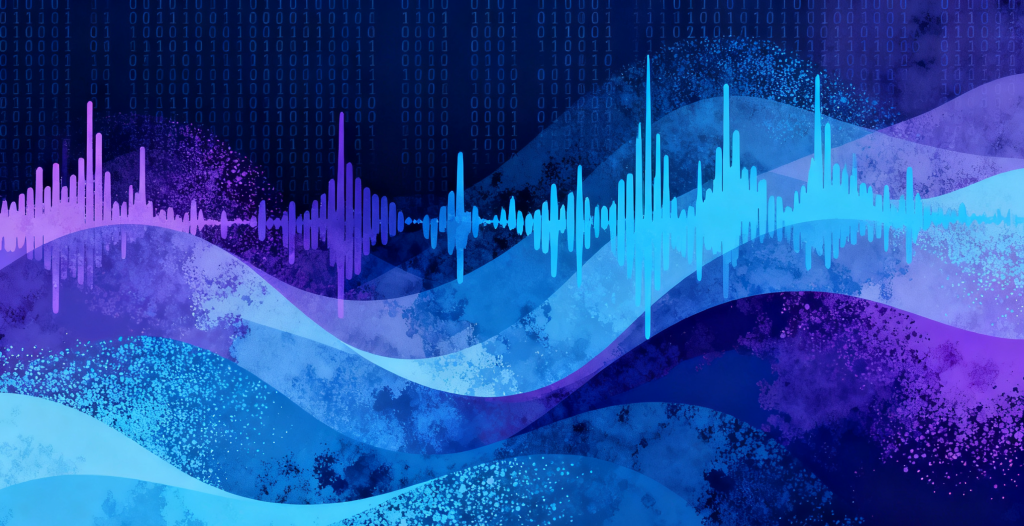
팟캐스터는 다음과 같이 시작합니다. 무레카 플랫폼에 가입하기 를 클릭하고 프로젝트 인트로 음악, 아웃트로 테마 또는 배경 악보를 지정합니다. 그런 다음 스타일 프리셋을 선택하거나 레퍼런스 오디오를 업로드하여 AI 작곡 엔진에 안내합니다. 이 간단한 프로세스를 통해 모든 기술 수준의 크리에이터가 고급 사운드 디자인에 접근할 수 있습니다.
다음으로 사용자는 다음에서 배열을 미세 조정합니다. Mureka의 AI 편집기 악기 밸런스, 템포, 효과 파라미터를 조정하여 팟캐스트의 완성도를 높일 수 있습니다. 팟캐스터는 원활한 미리보기 도구를 사용하여 트랙이 에피소드 세그먼트에 완벽하게 맞출 때까지 반복할 수 있습니다. 마지막으로 스템과 소유권 인증서를 다운로드하여 편집 소프트웨어에 즉시 통합할 수 있습니다.
다음을 사용하여 사용자 지정 팟캐스트 인트로와 아웃트로를 생성하는 주요 단계 Mureka AI:
- 대시보드에서 “팟캐스트 소개/아웃트로” 프로젝트 유형을 선택합니다.
- 무드, 장르, 템포 사전 설정을 선택하거나 참조 스니펫을 업로드하세요.
- AI가 생성한 옵션을 검토하고 상품 수준을 세분화하세요.
- 최종 스템을 다운로드하고 로열티 없는 사용 인증서를 보관하세요.
이러한 작업을 수행하면 자연스럽게 팟캐스트의 전문성을 높여주는 사운드스케이프를 게시할 수 있습니다.
AI 음악 생성기를 도입한 팟캐스터는 창의성, 법적 확실성, 비용 절감을 위한 새로운 길을 열어 오디오 스토리텔링의 다음 시대를 앞당기고 있습니다.

